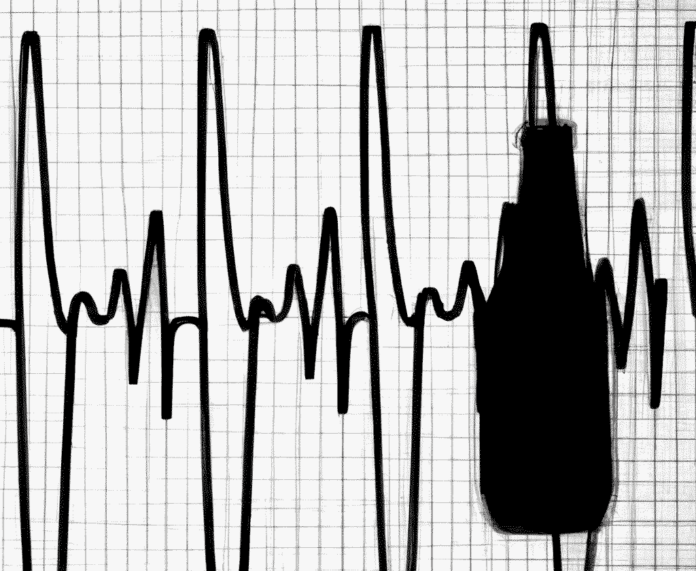Alcohol has been a ubiquitous part of human culture for centuries, with its presence in social gatherings, celebrations and even everyday life. In fact, it is the only drug in the world that when a person decides not to use it, they are then looked upon as “weird” or “odd.” Non-drinkers are made to feel as outcasts or “must have a problem.” Can you just imagine if we had the same universal disposition to or acceptance of heroin or cocaine? Alcohol is essentially rocket fuel – chemically poisonous and capable of exploding – but “we” deem it as normal and are willing to spend copious amounts of money on it. In my research I found on the NIH National Institute on Alcohol Abuse and Alcoholism a spending calculator. I low balled it and said the average person drinks 3 days a week having 2 drinks each day and the drinks each cost $10. That came out to be an annual spending of $3,120. Want to know what you’re spending? Click here to find out Alcohol Cost Calculator – How Much Are You Spending? | NIAAA (nih.gov)
Drinking is clearly not just a money-depleting habit but one that also undeniably affects our health. In this article, I delve into the effects of alcohol consumption on various aspects of human well-being, supported by compelling statistics and reputable references.
Liver Health: The liver bears the brunt of alcohol’s detrimental effects. Chronic alcohol consumption can lead to alcoholic liver disease, which encompasses a range of conditions, including fatty liver, alcoholic hepatitis, and cirrhosis. According to the World Health Organization (WHO), alcohol-related liver disease accounts for some 3 million deaths annually, representing 5.3% of all global deaths.
Cardiovascular system: Moderate alcohol consumption has often been associated with potential cardiovascular benefits, particularly for the heart. However, excessive alcohol intake can result in high blood pressure, irregular heartbeats, and an increased risk of stroke. The American Heart Association reports that excessive alcohol consumption is a contributing factor in some 88,000 deaths in the United States each year.
Mental health: Alcohol and mental health are closely intertwined, as alcohol is frequently used as a coping mechanism for stress, anxiety and depression. Paradoxically, excessive alcohol consumption can exacerbate these conditions, leading to a vicious cycle. The National Institute on Alcohol Abuse and Alcoholism (NIAAA) highlights that alcohol misuse is a significant factor in the development of mental health disorders, with about one-third of individuals with a mental illness also experiencing an alcohol use disorder.
Cancer risk: The link between alcohol consumption and various types of cancer is well-established. According to the International Agency for Research on Cancer (IARC), alcohol is classified as a Group 1 carcinogen, indicating that it is a known cause of cancer in humans. Statistics from Cancer Research UK reveal that alcohol consumption is responsible for 12,800 new cancer cases and 6,000 cancer deaths in the United Kingdom each year.
Alcohol consumption can also have significant effects on exercise gains and muscle health. Firstly, alcohol is a diuretic, which means it can lead to dehydration. Dehydration can impair muscle function and reduce overall exercise performance, making it harder to achieve optimal gains. Furthermore, alcohol can negatively affect muscle protein synthesis, the process responsible for muscle repair and growth. It interferes with the body’s ability to effectively use nutrients, such as protein, which are crucial for muscle recovery and development. Alcohol also disrupts sleep patterns, affecting the body’s natural recovery processes and diminishing the potential gains from exercise. Furthermore, excessive alcohol consumption can lead to increased fat deposition, particularly around the abdominal area, which can impede muscle definition and overall fitness goals.
While alcohol can be enjoyed in moderation, it is vital to recognize the potential health risks associated with excessive or prolonged consumption. The statistics provided in this article paint a sobering picture of the effects of alcohol on the liver, cardiovascular system, mental health, cancer risk, and fitness goals. To promote public health and individual well-being, it is crucial to raise awareness about the potential consequences of excessive alcohol consumption.
References:
- World Health Organization (WHO) – www.who.int
- American Heart Association – www.heart.org
- National Institute on Alcohol Abuse and Alcoholism (NIAAA) – www.niaaa.nih.gov
- International Agency for Research on Cancer (IARC) – www.iarc.who.int
- Cancer Research UK – www.cancerresearchuk.org
- Centers for Disease Control and Prevention (CDC) – www.cdc.gov



























